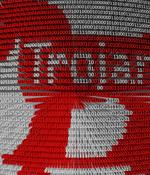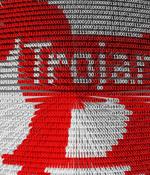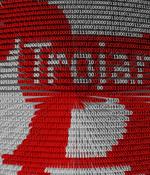Security News

He was the Gozi group's web expert, coding up bogus HTML content that the malware could inject into legitimate web pages in order to trick victims and steal their account information. Unlike many cybercriminals at the time, who profited from malware solely by using it to steal money, Kuzmin rented out Gozi to other criminals, pioneering the model of cybercriminals as service providers for other criminals.

The last of the three men said to be responsible for infecting Windows computers with the banking trojan Gozi has been sentenced to three years. Mihai Ionut Paunescu, 37, was said to have supplied the bulletproof hosting that is so vital for the efficient running of malware ops, allowing his co-conspirators to distribute the Gozi malware that stole confidential financial information from millions of computers, among them some Windows boxes running at NASA. The Romanian national, whom Feds say was also known as "Virus," was sentenced [PDF] to three years in prison on Monday.

A man suspected of providing the IT infrastructure behind the Gozi banking trojan has been extradited to the US to face a string of computer fraud charges. According to court documents [PDF], Paunescu allegedly ran a "Bulletproof hosting" service using computers in Romania, America, and other locations to help cybercriminals distribute Gozi and other malware including the Zeus Trojan and SpyEye Trojan.

That's certainly the case for a troika of cybercriminals alleged to have been behind the infamous Gozi "Banking Trojan" malware, which first appeared in the late 2000s. Kuzmin, as we explained at the time, was effectively the COO of the group, hiring coders to create malware for the gang, and managing a bunch of cybercrime affiliates to deploy the malware and fleece victims - an operating model known as crimeware-as-a-service that is now used almost universally by ransomware gangs.

Colombian authorities on Wednesday said they have arrested a Romanian hacker who is wanted in the U.S. for distributing a virus that infected more than a million computers from 2007 to 2012. Paunescu was previously charged by the U.S. Department of Justice in January 2013 for operating a bulletproof hosting service that "Enabled cyber criminals to distribute the Gozi Virus, the Zeus Trojan and other notorious malware, and conduct other sophisticated cyber crimes." He was arrested in Romania in December 2012 but managed to avoid extradition to the U.S. "Through this service, Paunescu, like other bulletproof hosts, knowingly provided critical online infrastructure to cyber criminals that allowed them to commit online criminal activity with little fear of detection by law enforcement," the DoJ said in an unsealed indictment.

The troika was wanted for allegedly operating a bank-raiding crimeware "Service" known as Gozi, based on zombie malware that used a technique known as HTML injection to trick victims into revealing personal information relating to their on-line banking. But if you can plant malware on the victim's PC, you can use what's known as an MiTB attack, or "Manipulator in the browser".

Colombian officials say they have arrested a Romanian hacker who is wanted in the U.S. for distributing a virus that infected more than a million computers from 2007 to 2012. Mihai Ionut Paunescu faces computer intrusion and banking fraud charges in New York, where prosecutors say he was part of a ring of criminals that developed and spread the "Gozi" virus and other forms of malware that were used to steal money from bank accounts.

The well-known Gozi ISFB banking Trojan recently started using the elusive "Dark Cloud" botnet for distribution, Talos warns. read more

